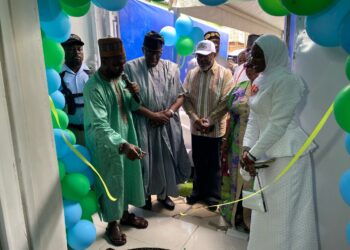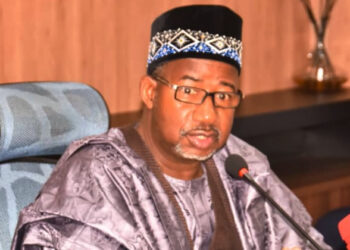Nigeria launches SINCCAR, a training programme for 120 young researchers to boost cancer research. Discover how this initiative aims to transform cancer care.
The Federal Government has launched a transformative training programme, SINCCAR (Strengthening Institutional Capacity for Cancer Research and Implementation), aimed at empowering 120 young researchers to revolutionise cancer research and treatment in Nigeria.
This initiative seeks to build a robust foundation for sustainable institutional and human resource capacity, addressing critical gaps in cancer research and fostering policy reforms nationwide.

During the opening ceremony in Abuja, Usman Aliyu, Director-General of the National Institute for Cancer Research and Treatment, emphasised the programme’s focus on empowering young researchers and preparing Nigeria for the development of innovative cancer interventions.
“The interventions range from prevention and the design of effective screening tools to identifying young Nigerians with early-stage cancer,” he stated.
Aliyu highlighted the critical shortage of oncology researchers in Nigeria and Africa’s minimal contribution to global clinical trials, which are essential for developing new cancer therapies.
“Research is also critical in developing diagnostic tools and novel therapies tailored to the country’s most common cancers,” he added.
The SINCCAR project, designed for nationwide implementation across all geopolitical zones, will focus on genomic studies, enabling researchers to develop precision medicine tailored to prevalent cancer types in Nigeria.
Nwamaka Lasebikan, Director of Research and Innovation, underscored the programme’s commitment to evidence-based decision-making. “We no longer want research to be conducted just for academic purposes or to fulfil promotion requirements.
We want it to address local problems, contribute to the country’s social enterprise, and unlock the value chain within the research ecosystem,” she said.
The programme selected 120 participants from over 500 applicants nationwide, ensuring a multidisciplinary approach with basic science researchers, medical doctors, laboratory scientists, and computational science experts.
Participants will undergo immersive training in research methodologies, genomics, health outcomes research, and implementation science.
Successful candidates will also participate in a year-long mentorship programme to implement their research grants and build on their acquired knowledge. This Nigeria cancer research training is a step towards a healthier nation.









